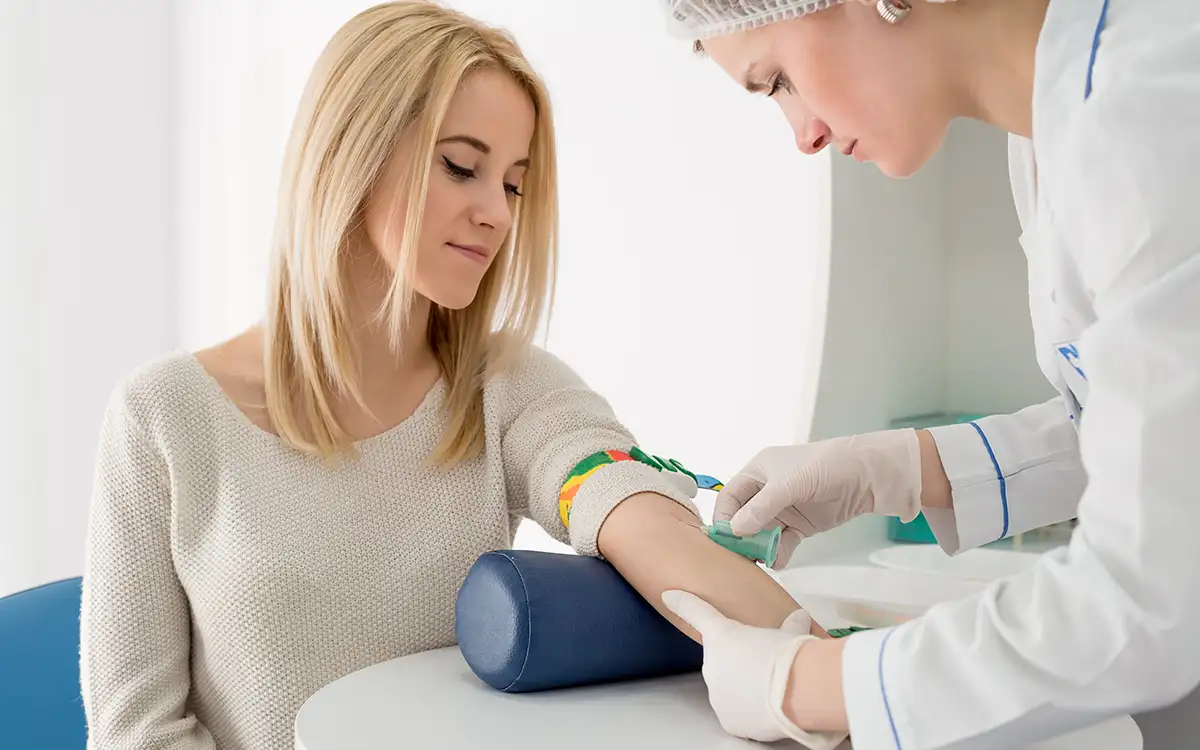new to the gluten free journey?
new to the gluten free journey?

Contents
ToggleThere are several different options to test for celiac disease.
You might be wondering if you should get tested for celiac disease at all. Here are some instances in which you should test for celiac disease:
Some people prefer to use symptom recognition as an alternative to formal testing. The benefits to this are that it does not require gluten consumption prior to testing, and it is also less expensive or invasive than some of the other methods. However, the symptoms of celiac disease and gluten sensitivity can overlap with other conditions and can vary greatly from person to person. This can make a diagnosis challenging. Common symptoms include the following:
Despite testing flaws and potential false negatives, the best way to diagnose celiac disease is to test. If your test shows up negative, you may want to try a gluten free diet for a few weeks to see if that helps your symptoms. We also suggest working with an experienced practitioner who can help dig deeper to determine if there are other factors at play, like bacteria or yeast overgrowth, infections, parasites, leaky gut, or other conditions.
In order to ensure an accurate result on a blood test or endoscopy, you do need to continue eating gluten. This is because once you have eliminated gluten from your diet, antibodies to gluten will start to decrease in your blood, and your intestine will start to heal. Therefore, if you eliminate gluten from your diet prior to a test, there is a risk of a false negative result on both a blood test and endoscopy.
We know that if you have avoided gluten from your diet for a long time, you may be nervous to reintroduce it for fear of dealing with the many symptoms that can come with gluten consumption. This hesitation is understandable and valid, so always consider your own personal circumstances in deciding when and how to introduce gluten into your diet prior to a test.
The Celiac Disease Center at the University of Chicago recommends eating gluten every day, in an amount equivalent to at least 1 slice of bread, for at least 2 to 3 weeks prior to undergoing biopsy.
However, we understand that this type of approach may result in significant discomfort, so know that gluten in any amount prior to your test will help with the accuracy of the results. Smaller or more infrequent servings may work better for your own personal circumstances. In addition, you can consider the quality of the gluten that you choose to consume. Something like organic sourdough may cause less discomfort and have fewer other side effects than a refined and processed form of gluten.
It is best to perform your testing and pre-testing gluten consumption alongside a practitioner who is experienced in working with those with celiac disease. A gluten challenge is not recommended before the age of 5, during puberty, or during pregnancy, as the consumption of gluten can affect nutrient absorption and lead to deficiencies.
There are a number of different ways to test for celiac disease. Both blood testing and endoscopy can yield false negative results and require that you eat gluten before testing in order to increase the chance of an accurate result. As an alternative, genetic testing is available to test for the genes that predispose you to celiac disease. Genetic testing is non-invasive and does not require that you eat gluten prior to testing.
Stay up-to-date with the latest articles, tips, recipes and more.

*These statements have not been evaluated by the Food and Drug Administration. This product is not intended to diagnose, treat, cure or prevent any disease.
If you are pregnant, nursing, taking medication, or have a medical condition, consult your physician before using this product.
The entire contents of this website are based upon the opinions of Peter Osborne, unless otherwise noted. Individual articles are based upon the opinions of the respective author, who retains copyright as marked. The information on this website is not intended to replace a one-on-one relationship with a qualified health care professional and is not intended as medical advice. It is intended as a sharing of knowledge and information from the research and experience of Peter Osborne and his community. Peter Osborne encourages you to make your own health care decisions based upon your research and in partnership with a qualified health care professional.
One Response
Hopefully this will give me some insight.